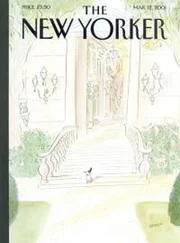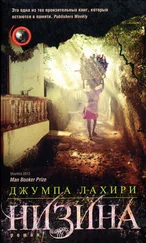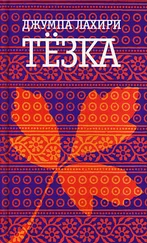I ignore the things I need to do and start following her, I have no choice in the matter. I adjust my pace, speeding up a bit, then wait while she pauses at the crosswalk. I wonder if anyone else on the street remarks on the coincidence of two women, twinned, strangers to one another, who walk together, also separately. What’s her face like? Has she always lived here, like me? Or is she just visiting? If so, why? Is she meeting someone? Is it something for work? Is she going to visit her grandmother, a woman in a wheelchair who can no longer come downstairs and sit in the piazza? Is she a woman with millions of things to do? Is she anxious or carefree? Married or alone? Is she going to ring the buzzer of a friend of hers? A lover? Is she going to stop to drink some fruit juice or have a gelato?
My double, seen from behind, explains something to me: that I’m me and also someone else, that I’m leaving and also staying. This realization momentarily jostles my melancholy, like a current that stirs the branches, that discomfits the leaves of a tree.
I wait until she crosses the street, then keep following. There’s no traffic light here, I need to wait for a clearing. The road has a slight curve up ahead, and for an instant I lose her. I wonder which way to turn. But once I cross to the other side I don’t see her, neither to the right nor to the left, nor up ahead. I run toward the piazza and look for her in the gelato shop, in the pharmacy, at the dry cleaner. I make a round of the whole piazza, searching for her, as if she were the morning paper I’d just bought at the newsstand, still to unfold, the sheets still smooth and clean, left mistakenly by the cash register while I was paying for my coffee at the bar. I can get distracted that way. I always end up finding the newspaper again, the store owner in question always sets it aside for me. But I’ve lost her, she’s gone.
Did I imagine her? No, I’m certain I saw her. A variation of myself with a sprightly step, determined to get somewhere, just up ahead.
Nowhere
Because when all is said and done the setting doesn’t matter: the space, the walls, the light. It makes no difference whether I’m under a clear blue sky or caught in the rain or swimming in the transparent sea in summer. I could be riding a train or traveling by a car or flying in a plane, among the clouds that drift and spread on all sides like a mass of jellyfish in the air. I’ve never stayed still, I’ve always been moving, that’s all I’ve ever been doing. Always waiting either to get somewhere or to come back. Or to escape. I keep packing and unpacking the small suitcase at my feet. I hold my purse in my lap, it’s got some money and a book to read. Is there any place we’re not moving through? Disoriented, lost, at sea, at odds, astray, adrift, bewildered, confused, uprooted, turned around. I’m related to these related terms. These words are my abode, my only foothold.
On the Train
There are five of them, four men and a woman, all more or less the same age. They resemble one another strongly, they’ve all got dark hair, some meat on their bones, and they smile easily. The woman says hello before taking her place across from me, beside the window. And in a heartbeat, my compartment on the train, where I’d been quietly reading, thrums with energy. I can’t figure out how they’re related to each other. Are they siblings? Cousins? Three brothers and a couple? Or just five friends who behave as if they were a family?
As soon as they’ve boarded and settled into their seats they start eating, they all appear to be starved. On the table between them they open up a series of bags filled with healthy but tasty food: walnuts, blood oranges, dried figs, all of which they quickly devour. They share these comestibles, placing wedges of fruit and pieces of chocolate into each other’s mouths as if they were all mothers, and also all children eager to be fed. There’s such affection coursing between them. What zeal for life, how pleased they are to be together. They appear to need nothing more.
They’re talking the whole time in a language I don’t recognize. I take it as a sign—soon enough I’ll be in another country, surrounded by another impenetrable tongue. As they converse they listen to music—songs filled with pain and passion—on one of their cell phones. The sound quality is awful but the music overwhelms them. They close their eyes and react to it. Now and then they sing along, as if it were perfectly normal to sing out loud on a train full of strangers.
They offer me the walnuts, the figs, the chocolates, the blood oranges. All the food looks fresh, appealing. But I’m not hungry, I’ve already eaten a sandwich, tasteless and rather cold.
The group’s effusive behavior clashes with that of the other passengers. Not one of them reads a book, or naps, or talks softly on a cell phone. They shatter the silence, they disrupt the monotony of the trip. This boisterous crew transforms the atmosphere of the train I’ll be sitting in all day long.
I wonder where they’re going. All the way to the last stop, in order to reach the border and then cross it, like me? They appear to be waiting for something, they’re excited, also a bit nervous. Every time the train makes a stop they look outside, alert, as if they don’t know whether or not they should be getting off. Who are they going to see? What’s the occasion? What’s about to happen in these people’s lives?
The woman, who’s wearing quite a bit of makeup, has a round face and large, flashing dark eyes. She reacts to the music, uninhibited, and at one point, noticing that she’s in tears, I look the other way. Then she starts to teach one of her companions how to say goodbye in our language. She repeats it again and again, and they all start laughing. As if there were schoolchildren they recite, together, ar-ri-ve-der-ci!
Then without warning one of the men turns into a hairdresser. He pulls the equipment out of his backpack: a brush, a curling iron, linseed oil, spray. He gives the woman a very elaborate hairdo. As he brushes and styles her hair the others take numerous photos of her, to document each step of the process.
The others aren’t formally dressed. Short leather jackets, dark pants, sneakers.
She rests her sunglasses on the table, next to the hard-shell case that contains my reading glasses. Her pair is made of cheap plastic and the lenses are scratched, like wrinkles on a forehead or like the folds of the sea if you see it from very far away or from up high. My lenses are costly, polished smooth. Her laughter is frequent, it pours from her seductively. She tells various stories, long detailed anecdotes to entertain the others. They listen to her, transfixed.
A plastic garbage bag sits at their feet, among all the backpacks, and by now it’s bulging with orange peels that need to be thrown away. They’ve torn through all the food, nothing of what they brought to eat on board remains.
At the next stop, they get up abruptly. They say goodbye to me, thank me, apologize. Then they grab their things and get off. They leave me in my place, with my book, my hard-shell eyeglass case, my lightly packed suitcase.
There’s no more trace of the foreign brigade, that feeding frenzy. The table is spotless, the seats they’d just occupied are again free. Now I regret not having accepted even a morsel of their lavish meal. But thanks to them, not even a crumb of it lingers.
Notes
This page: Portagioie, the Italian word for jewelry box, is a compound of two polyvalent words. Gioia (pl. gioie ) means both “joy” and “jewel.” Porta, meanwhile, derives from the Latin verb port ā re, and belongs to a constellation of words pertaining to acts of bearing, bringing, carrying, and transporting, which in turn give rise to terms for “door,” “gate,” and “port.” Portagioie, therefore, could also be interpreted, in Italian, not only as a box of jewels, but a container of joy, a doorway or gateway to joy, something that brings joy.
Читать дальше
![Джумпа Лахири Whereabouts [calibre] обложка книги](/books/384312/dzhumpa-lahiri-whereabouts-calibre-cover.webp)




![Хелен Виннер - 33 несчастья Алисы [calibre]](/books/384302/helen-vinner-33-neschastya-alisy-calibre-thumb.webp)
![Даниэла Стил - Finding Ashley [calibre]](/books/384308/daniela-stil-finding-ashley-calibre-thumb.webp)
![Аманда Горман - The Hill We Climb [calibre]](/books/384311/amanda-gorman-the-hill-we-climb-calibre-thumb.webp)
![Дэвид Балдаччи - A Gambling Man [calibre]](/books/384314/devid-baldachchi-a-gambling-man-calibre-thumb.webp)
![Джон Ирвинг - Viename asmenyje [calibre]](/books/384315/dzhon-irving-viename-asmenyje-calibre-thumb.webp)
![Джон Ирвинг - Paskutinė naktis Tvisted Riveryje [calibre]](/books/384317/dzhon-irving-paskutine-naktis-tvisted-riveryje-cal-thumb.webp)
![Джон Ирвинг - Pasaulis pagal Garpą [calibre]](/books/384318/dzhon-irving-pasaulis-pagal-garpĄ-calibre-thumb.webp)
![Джон Ирвинг - Našlė vieneriems metams [calibre]](/books/384320/dzhon-irving-naŠle-vieneriems-metams-calibre-thumb.webp)